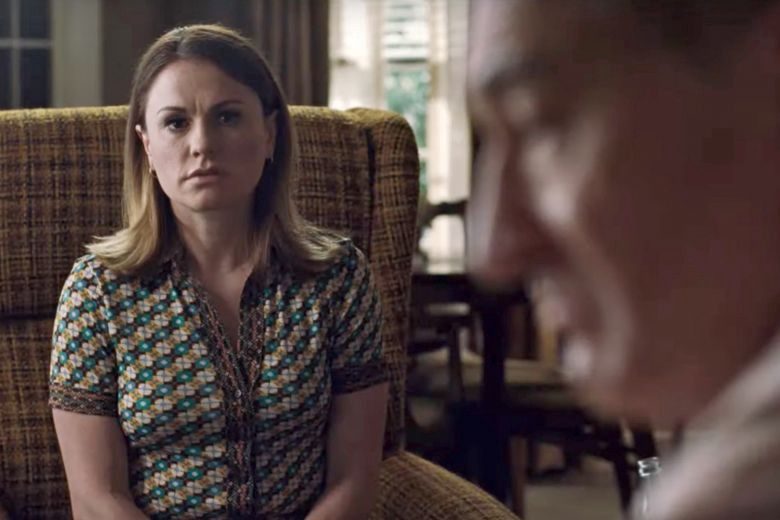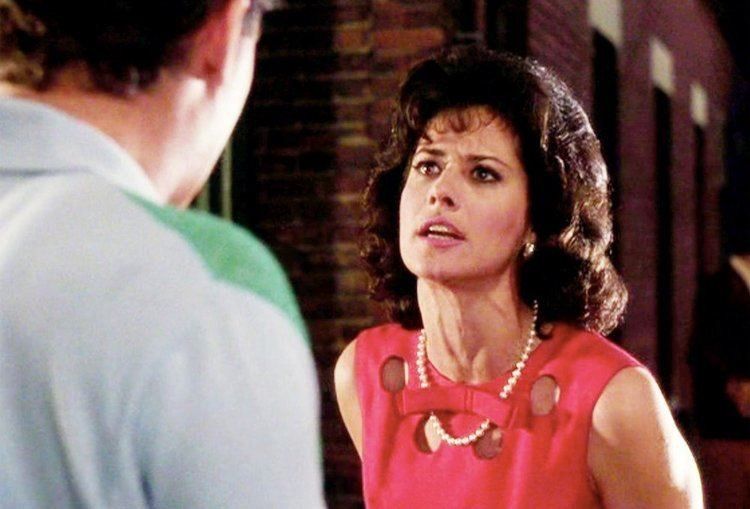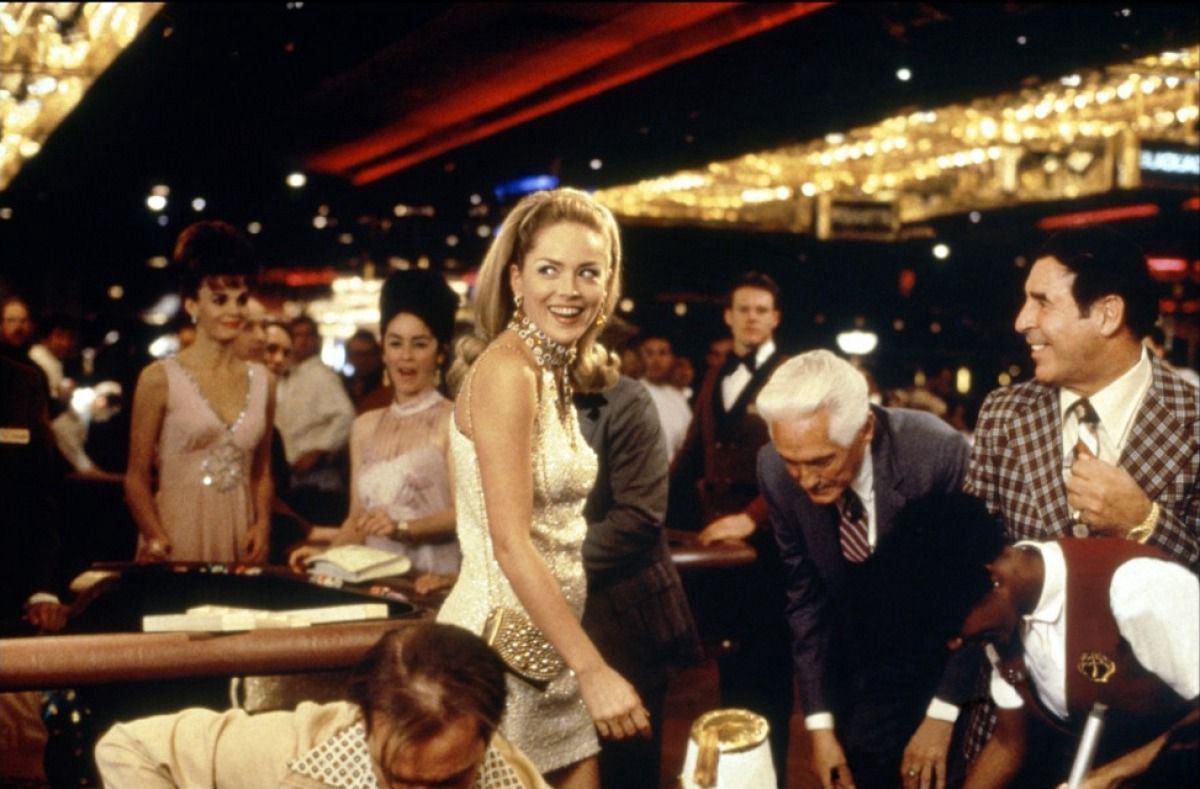The Irishman Is Missing A Woman
The lead actress only says ‘why?’

Satriale’s Pork Store was an appropriate setting for The Sopranos. The mafia is a sausage fest. Truly an all-male world with female accessories. And yet the great mafia films, including The Sopranos, had a strong female presence. Martin Scorcese, in particular, was excellent at this. In Goodfellas, Lorraine Bracco was a second narrator. In Casino, Sharon Stone was the third lead. That’s what the Irishman is missing. An Irishwoman.
There is a woman at the emotional center of the film — the daughter Peggy Shereen — but she remains mute. Played as an adult by Anna Paquin, she only speaks seven words in the entire film. Here they are, in their entirety:
“Why?” Peggy asks Frank to which he responds “Wha?”
“Why?” she asks again
“Why what?” Frank says.
“Why haven’t you called Jo?,” she asks.
After that point, she stops speaking to her father (and us) ever again. Not that she spoke much anyways. Near the end of the film, when he is unable to speak to Peggy he speaks to his second daughter. She says:
Daddy, you had no idea what it was like for us.
And we don’t. Besides wives asking for cigarettes, this scene is the only time a woman really speaks in the film, and it’s over all too soon. Some critics have said that this is subtlety, that the female muteness improves the film.
Scorsese’s greatest expression of trust in Peggy is to give the look of disgust in her eyes more moral weight than all the men’s words and actions.(Alyssa Rosenberg, Washington Post)
Both actors playing Peggy convey this much with withering, meaningful glances rather than histrionic speechifying, which has been a touch subtle for some of the internet’s simpler cultural critics.
While detractors have levied the charge of sexism against the script for seemingly stripping one of its few female characters of her ability to speak, cooler heads have posited that this must surely be the point. (Charles Bramesco, The Guardian)
Certainly, it is the point. It’s just not good.

In Goodfellas, Bracco had much more to work with than glances. She was a narrator of the film, they not only showed her perspective, she told us. And the film was much better for it. An entire film of Henry Hill would have been difficult to watch, but Karen Hill balanced him, gave us perspective on the mob life and a fuller picture of humanity.
She didn’t just stand by mutely and condemn with withering glances. She yelled, screamed, delighted and pulled guns. She was a vital part of the film.

In the same way, what would Casino be without Sharon Stone? Joe Pesci being murderous and Robert De Niro being pedantic. It would have been insufferable. Stone’s Ginger was a character that brought light to Vegas, and to the film. She also, had lines.
The act that muting the one female in a 3:30 runtime adds value is absurd. They spent more time talking about a fish than on the emotional center of the film. All we had was Frank Sheeran for over three hours, and he — in various stages between digital grape and prune — became insufferable. There was no emotional balance. He was an emotional vacant character, and his daughter’s perspective was completely absent.
By leaving Peggy out, I truly believe that Scorsese left the film without any compelling character development at all. Frank does not change. His face changes a bit, but his character doesn’t. He starts a workmanlike gangster and he ends a workmanlike gangster. They spent a lot of energy on his face, but little on what’s behind it.
The only character, the only relationship that develops is between Frank and Peggy. Frank’s relationship with Buffalino is always the same — patron and vassal. His relationship with Jimmy Hoffa is the same — bodyman to body — until the point that he [spoiler alert?] kills him.
And Frank has no real reaction to this, the central moment of the film. He never reckons with it. Peggy has to carry that emotional weight, but she is only given seven lines to do it. “Why? Why? Why haven’t you called Jo?”
Is that adequate? For the central relationship, the central moment? The emotional crux of the film? Why didn’t you call Jo?
This is the central flaw of The Irishman, not the digital faces, not the length, not the jumps in time. It’s the fact that the one character that develops is mute, invisible and, not coincidentally, female.
A different Irishman could have been framed of a coming of age story — like Bronx Tale, directed by De Niro. It could have been the coming of age of Peggy. Her relationship with her father, her relationship with Jimmy Hoffa, and the irreparable rift when one murders the other. That would have taken the film from a fascinating and beautiful collection of events to a story. A feeling. A change.
Instead, the film is flat. It’s not just that it’s male. It’s that it’s about a male who doesn’t change. The Irishman is missing a woman.